You will need:
- Ice cubes
- 100mL Methylated spirits Warning: Flammable
- 100mL Water
- Two Measuring jugs with gradations
- Measuring scales, preferably sensitive
- Adult Supervision.
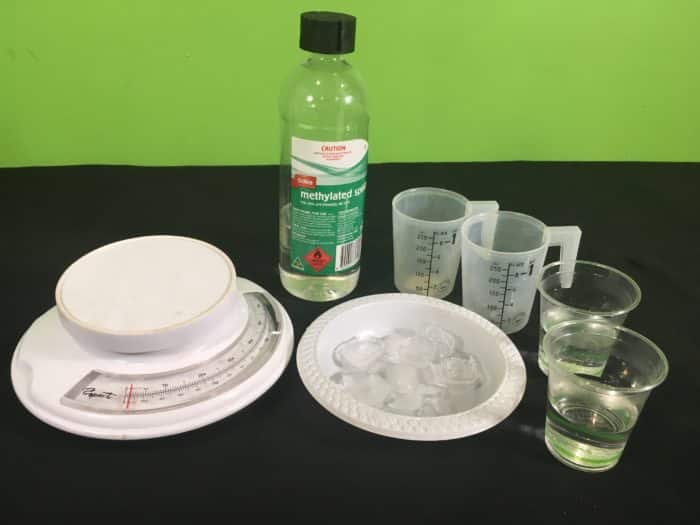
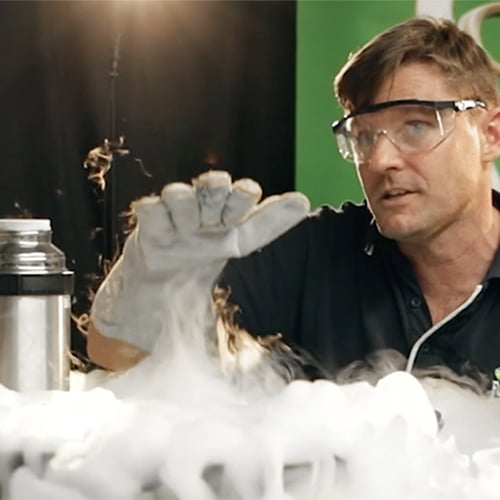
School science visits since 2004!
– Curriculum-linked & award-winning incursions.
– Over 40 primary & high school programs to choose from.
– Designed by experienced educators.
– Over 2 million students reached.
– Face to face incursions & online programs available.
– Early learning centre visits too!
Why Does This Happen?
Each liquid has a different density.
This means that although the volume is the same, the mass of each liquid is different.
Density = Mass/ Volume.
It can be affected by temperature and atmospheric pressure
The higher the density, the more compact the substance.
The density of water in grams per cubic centimetre is 1.00, however the density of ice is only 0.9182. Ice floats on water as it is less dense, however as the densities are quite close approximately 11% of the ice volume shows above the water surface.
Floating ice displaces the liquid water around it. If floating ice melts, there would be no visible change in global sea levels. However, if ice sheets over Greenland or Antarctica melt there will be a rise in sea levels. Scientific predictions are quite varied, as the water volumes within land ice are difficult to model. This is an ongoing field of research.
Methylated spirits is predominantly ethanol, which has a density of 0.785. As ice has a greater density at 0.9182, it fell through the liquid to the bottom of the container.
Variables to test
- What happens if you place the ice cube in a different liquid such as canola oil or glucose syrup?
- Does it matter if the liquid is cold vs warm?
Teaching about floating & sinking? from density to surface tension, our Working with Water workshop has you covered!
Get in touch with FizzicsEd to find out how we can work with your class.
Working with Water
Years K to 2
Maximum 30 students
School workshop (NSW & VIC)
60 or 90 minutes
Online Class Available
STEM Full Day Accelerator - Primary
Designed from real classroom experiences, this modular day helps you create consistently effective science learning that directly address the new curriculum with easily accessible and cost-effective materials.
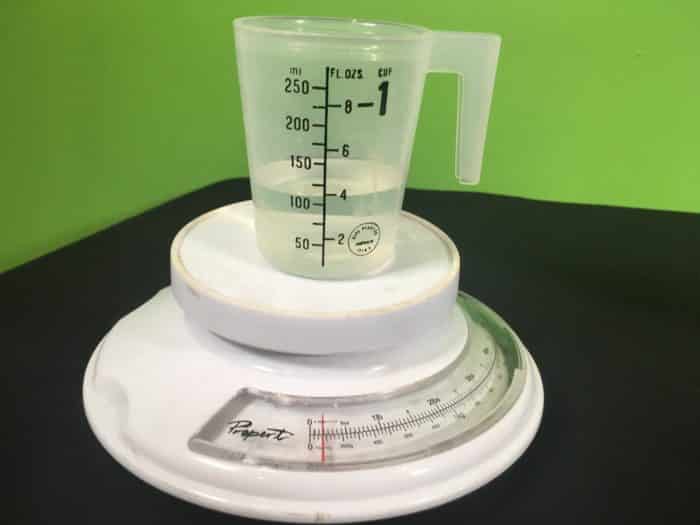
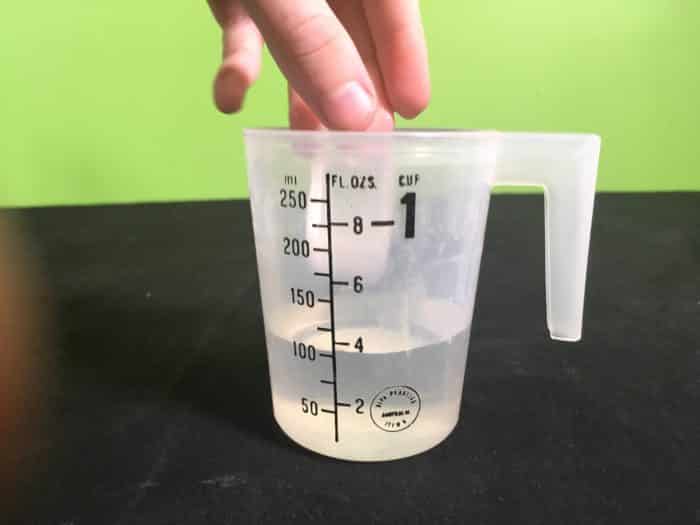
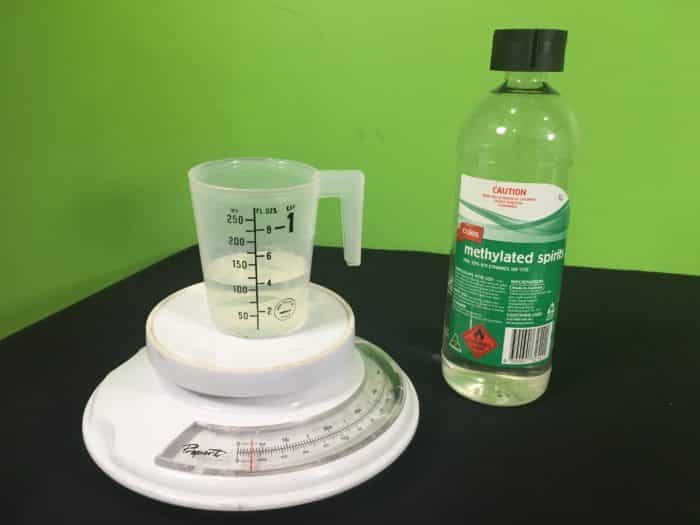
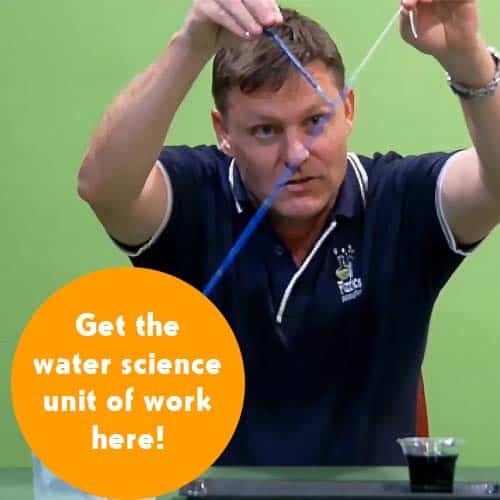
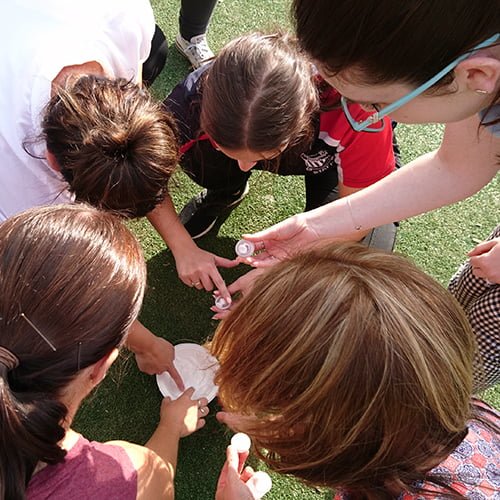
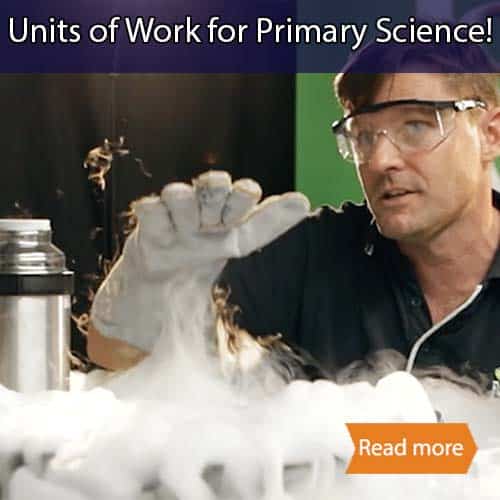
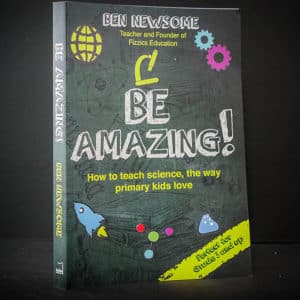























Comments